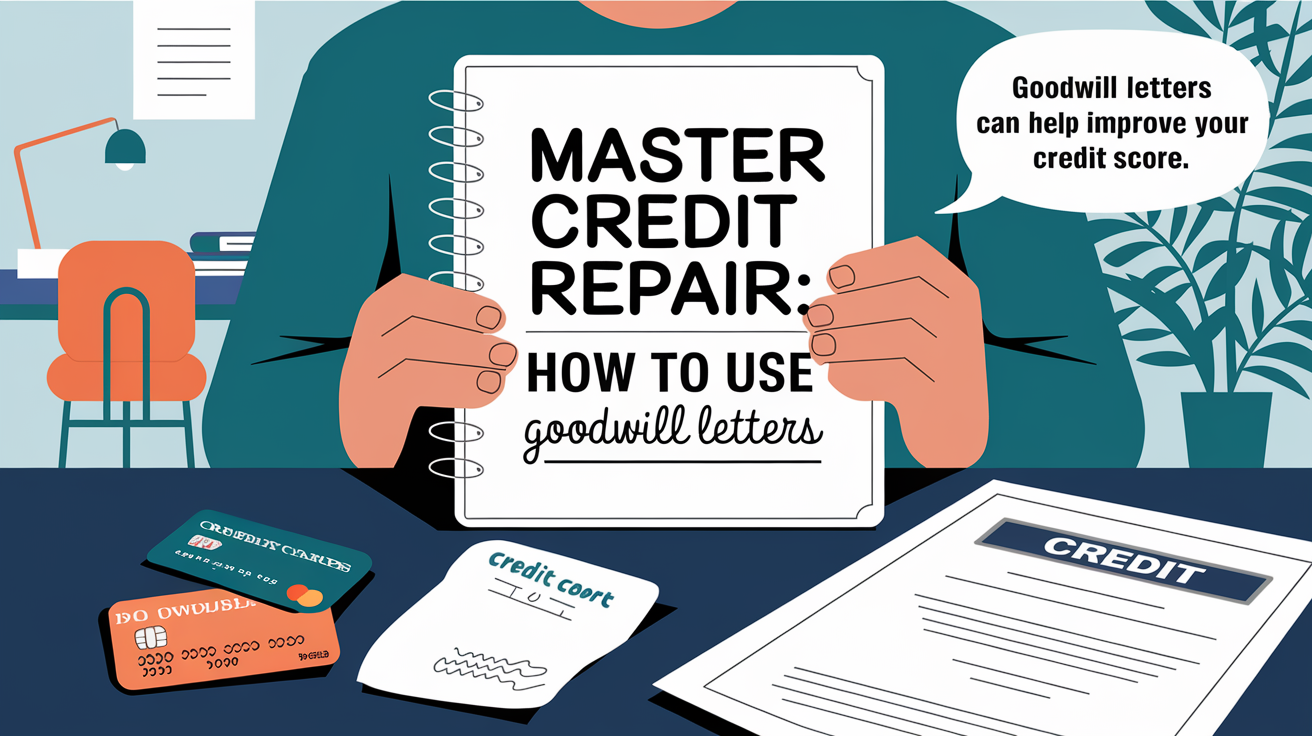How To Repair Credit To Buy A Home?
How to fix your credit for first-time home buyers?
Purchasing a house for the first time is among the most important and memorable events that may happen in a person’s life. Nevertheless, there is always the possibility that you may not qualify for a good credit score, which puts your dream in peril. Credit scores are considered by lenders as a benchmark for the probability of repaying debts. This indicates that the higher your score, the higher the likelihood of getting a mortgage with low interest rates. If your credit is not in the best shape, there are things you can do to improve it and therefore up your chances of approval. It will not take long before you start making a positive change toward your credit to buy a home.
Check Your Credit Reports The first thing you need to do is obtain your credit reports from the three major credit bureaus, Equifax, Experian, and TransUnion. The idea is that when you check your reports, you can see the mistakes that are affecting your scores. It also indicates where one stands in as many aspects of credit as possible. You are allowed to receive one credit report from each bureau within twelve months. All three should be reviewed to gain a holistic view. To challenge any errors that the bureaus have listed, you should send them supporting documents. This can help increase your scores once the mistakes have been identified and rectified.
Pay Down Balances Having high credit card balances also lowers the scores, even though you are making regular payments. It is recommended to pay cards down to thirty percent or less of the total limit. This tip alone will reduce your credit utilization rate, which compares your balances to your credit limits. It is advisable to avoid exceeding thirty percent of the credit limit on each card as well as the total combined credit limit. Be more careful and pay more than the minimum to make some headway in reducing balances each month. Do not utilize paid-down balances over and over.
Become an Authorized User Share your credit card with a relative or a friend who has had a credit history for a long time to become an authorized user. This means that their positive payment activity can start reflecting in your credit file. Make sure the credit utilization ratio is low compared to the credit limit and that there is no sign of a missed payment. In other words, as an authorized user, you cannot be held responsible for the card in terms of money. However, it can quickly improve scores by simply adding the years of your history.
Settle Collection Accounts Any unpaid collections can be extremely damaging to otherwise good credit. Call creditors to ask whether accounts could be paid off for less than outstanding balances. When paying, be sure to receive payment and settlement terms in writing. Once a collector takes your account out of your reports, your scores should improve. That means that once a lender agrees to delete, the collection will not be a part of your profile anymore.
Optimize Payment Histories Credit scores or payment histories have the biggest impact on the scoring models. Creditors record accounts as being paid on time, paid thirty days late, sixty days late, and so forth, the more severe and recent the scores decline. Re-establish positive histories. Pay at least the minimum amount so that regular monthly deductions are made through automatic payments on all accounts. You will need to set up account alerts for checking balances and due dates as well.
Limit New Credit Applications Every application, when made, results in a hard inquiry noted in your credit history. An excessive number of inquiries made over a short period may mean credit risk hence, they deduct points. This means that the management should not request financing when it is not essential. Mortgage or auto lending hard checks are only considered one inquiry if completed in the forty-five-day range. This minimizes the score’s damage when rate-shopping approved loans. However, it is important to note that soft inquiries initiated by your checks do not cause the scores to drop.
The score simulations are therefore useful for Most lenders and provide features that allow you to understand how certain activities will affect your credit ratings. Upon reviewing similar tools such as Bank of America's Better Money Habits, Chase Credit Journey, and Citibank Credit Score Estimator, the user can predict results that do not affect real scores. Capital One Credit Wise also provides a similar feature to its users of the credit card in the form of a credit score tracker. Unboulder the guesswork by using these and always score high grades in your exams.
Talk to Current Lenders First. Explain your home-buying plans to existing creditors. They may recommend products to help with down payments or credit ratings. Inquire about graduated-payment mortgages with flexible start rates. Covenants guarantee other approvals when ratings are slightly below normal credit-granting thresholds. Structured social ties give lenders confidence in lending to those they would otherwise deem high-risk.
Challenges and Corrects Any Inaccuracies In Credit Reports If your credit reports have information that is incorrect or old, challenge the inaccuracies with the bureau. The kind of evidence that is considered acceptable includes things such as paid receipts, canceled checks, or evidence that account issues were solved. Federal law mandates that bureaus investigate any claims within thirty days to ensure that they are not frivolous. This should improve your scores by correcting mistakes that are dragging them down.
Consider Credit-Building Loans Credit-builder loans facilitate undergoloan underwriting summing up all sources of income to qualify borrowers for the biggest credit volume while maintaining affordable monthly payments building credit. It involves a small loan that is deposited into a savings account, which is then locked. You pay a specific amount periodically in equal installments within a specific time frame to clear the debt. When the borrowed amount has been repaid, the savings account where the repayments and interests are deposited is released to the lender. These installment accounts assist in creating positive histories.
Lean on Non-Traditional Credit They should get mortgages with timely rent, utility, phone, and auto insurance payment proof for low credit score clients. As of now, it is not yet so common for lenders to accept the use of another credit history to meet history requirements. Records such as payments made for twelve consecutive months demonstrate creditworthiness without necessarily producing credit reports.
Improve Financial Heath Lenders look at the total balances due on all the liabilities. High existing credit lowers the chances of approval and disqualifies the borrower for the best interest rates. Reduce credit card balances, auto loans, student loans, and personal lines as much as possible. Credit card balances should be paid in a way that sees the client paying off smaller balances first while continuing to pay on the higher ones. Closing of such cards also goes a long way in improving this sector. Primarily, the borrowers who are in the best financial health are the ones who have the least difficulty in accessing home loans.
Talk to a Credit Counseling Agency It is important to note that most credit counseling organizations are accredited and provide tips and agency services at no charge to check your reports and analyze your financial situation. They provide lessons on how to enhance credit rating and develop plans to pay off debts. Some help in canvassing for payments or discussions on outstanding bills and dues. Not instantaneous solutions, counselors possess vast experience in managing all aspects of the credit-building process.
Mortgage pre-qualification involves the assessment of your past financial records, debt and income ratios, and credit scores. Thus, credit scores may take time and effort to increase, but owning a house is worth all the effort. Even observing some of these strategies will help you to prepare for mortgage qualification shortly.
Ready to boost your credit score? Call +1 888-804-0104 now for the best credit repair services near you! Our expert team is here to help you achieve financial freedom and improve your credit. Don't wait—get started today!



